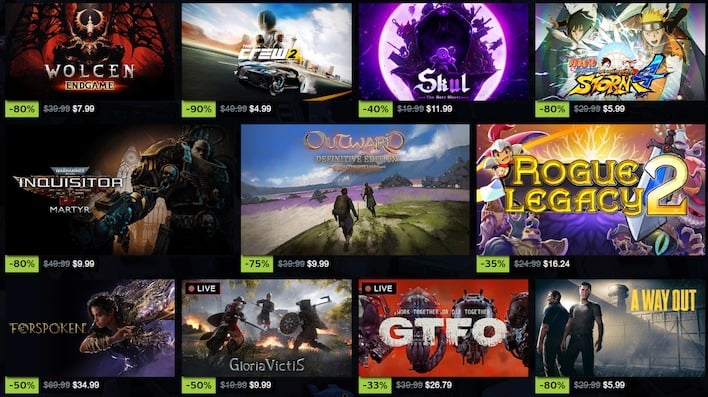Valve Responds To The Uproar Over Banning AI-Generated Game Content On Steam
Let's talk about AI-generated content. In case you've been living under a rock, humans have iterated on neural networks to the point that descriptively-named "generative AI" can actually create new images, audio, and even video from whole cloth. These generative AIs create new content by observing patterns in existing content and replicating those patterns in a new form, like the AI-generated "science fiction game character" above.
This reality has led to a lot of concern over the use of generative AIs in business, where copyright is a big deal. AIs can only reproduce patterns found in the content on which they are trained, and this training data often involves extremely large datasets of hundreds of thousands or even millions of samples. Where does one get millions of images on which to train an AI? By scraping the internet, of course.
The issue is that many AIs already in use by individuals were trained on data sets that include content for which the creator may not or does not have a license to use. Just as we here at HotHardware can't just go find any image off of Google Images and reprint it, likewise a game developer can't just rip an archive of Hyung-tae Kim's gorgeous manhwa-style art, train an AI on it, and then use that AI to produce their own images in his style.

This caused an uproar, as AI-generated assets could be a way for indie developers to produce surprisingly high-quality content without needing the millions of man-hours of work that go into producing AAA games these days. It was seen as "punching down" on a small developer, and a surprisingly-backward point of view—technologically—for Valve, a company that has historically been on the bleeding edge.
Well, the Steam developer has now provided a statement to Eurogamer that explains what its stance on AI-generated content is, exactly. The long and the short of it is that "while developers can use these AI technologies in their work with appropriate commercial licenses, they can not infringe on existing copyrights." This is a completely fair point of view; Valve wouldn't knowingly allow a game on Steam that ripped all of its models and textures from other games—although it has happened in the past.

It's still probably frustrating for indie developers who may not have the resources or even the possibility of determining the copyright status of their AI-generated content. As one example, many AI checkpoints produced for Stable Diffusion-style image generation don't talk about their training sets at all, leaving potential users with no way at all to know what the heck is even in the model to begin with—and even if they do list it, who's to say who gets the copyright? Whose art style does the girl in the top image resemble the most, and do they deserve the credit for her?
This is a complicated issue and we can't really blame Valve for taking the safe stance on this, especially considering that we're talking about products that will be sold for real money. It's one thing to infringe on a creator's copyright in your YouTube video or on your website, but it's a whole other thing altogether to take someone else's work and sell it as your own. That's not exactly what's happening here, but depending on how the courts see it, it might well be seen the same way in the near future.


